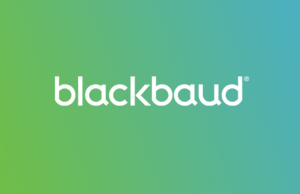The people have spoken in Tunisia and Egypt. Citizens have taken to the streets in Iran, Yemen and other nations throughout the Middle East. And while the leadership fell only in Tunisia and Egypt as of this writing, the form of government had less to do with the uprising than did the people’s living conditions.
The average family in Egypt was living on $2 a day. Professionals, such as doctors, brought home around $400 a month, unable to afford basics such as housing and transportation. The issue is human dignity and how services are delivered, not necessarily the personalities in charge of the countries.
As the United States begins its budget process and cuts are made, the question becomes will the uprisings hit the United States?
U.S. citizens have the right to speak at the ballot box and did so this past fall. They sent budget-cutters to legislatures both national and local. The Congress is not known for its lightning speed so getting anything passed will take far longer than it took to tumble the reign of Hosni Mubarak in Egypt. Will Americans wait?
How are Americans going to react when $2.5 billion in home heating assistance is gone, when unemployment remains between 9 and 10 percent of people still looking for few available jobs and as food and commodity prices like wheat and oil continue to escalate to obscene expense? These are the very issues that pushed people into the streets of Tunisia and Egypt.
How Americans react to the deficit reductions and program cuts is going to be the grandest form of democracy, hopefully. If comedian Stephen Colbert could draw several hundred thousand people to the Capitol Mall for a spoof ÒRally To Restore Sanity,Ó just imagine how many people will hit the streets of Washington, D.C., when the price of a birthday cake hits 50 bucks because the cost of flour, sugar and butter quadrupled or when a gallon of regular unleaded gasoline hits $5. The octane of that rally will be high test.
The Internet and other forms of mobile and instant communication have changed the way we react to even the most simple gestures. This nation is still scarred from the riots of the 1960s that brought about civil rights for all. Americans battling each other and the government for reforms and basic human rights in 2011 would be a stain on the national soul from which we as a nation might not recover.
Nonprofit leaders have a unique opportunity to showcase our civil society. The machinery is already in place to lobby legislators to keep the American social network from crashing and going off-line. More important is the ability to fundraise and the sophisticated ability to target donors who can give.
Someone is going to have to pay for the programs we can’t afford to lose and for which federal, state and local governments can’t afford to pay. The bill for a federal deficit that was kicked into the future for a couple of decades has come due. Americans understand that government must cut somewhere and there will be hard decisions that impact people.
Lawmakers and nonprofit sector leaders must strategize together, cutting programs from government roles when there is private support and the sector can handle the service.In this budget cycle the target is $100 billion in savings. Clearly, the majority of the cuts will be in federal mandates that states will be thrilled not to fund. Probably 20 percent of the cuts will directly impact programs not handled by the sector. That’s between 6 and 7 percent of the total giving to charity during 2009, the most recent statistics available.
Surely the sector can make the case to foundations and others that more is needed. The need will make it harder for leaders of endowments, such as Harvard University’s $27.4 billion, to stand on the sidelines. Given the scope of the foundation’s endowment, it wouldn’t kill Harvard and the other 10 top universities to ask alumni to give elsewhere for just one year.
In the case of Harvard, the endowment could pay for all services in its home of Cambridge, Mass., for nearly a half-century if not another penny was earned. Cambridge’s municipal budget is roughly $460 million for 2010-2011. It’s an increase of slightly less than $14 million. If Harvard simply picked up just the increase the city would be better prepared for the federal program cuts.
This is not to pick on Harvard, which has one of the best nonprofit management education programs in the nation. It’s an illustration of what endowments can do to help immediately. Foundations should be issued the challenge of increasing payouts. Foundation giving during 2009 was pegged at $42.9 billion by The Foundation Center. Those foundations reported asset growth to $583.4 billion. A short-term hike in the payout will hardly turn them into paupers.It’s time for the sector’s financiers to step up to ensure a civil society. NPT










